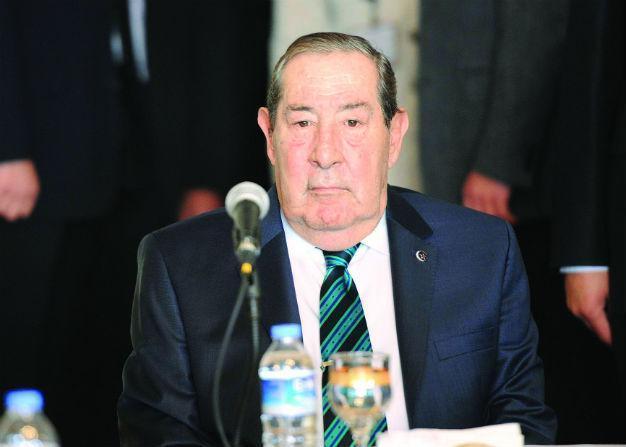Turkey’s former chief of staff rejects ‘coup attempt’ in e-memorandum testimony
ISTANBUL

HÜRRİYET photo
Former Chief of General Staff Gen. Yaşar Büyükanıt has said in his testimony that he did not intend to stage a military coup in Turkey, but merely sought to “protect the constitutional order and the wellbeing of the military,” as part of the April 27, 2007 “e-memorandum” case.
In his written testimony submitted as a suspect to prosecutor Seyit Peker who visited him at his home on Dec. 14, Büyükanıt said he had no intention of staging a military coup, state-run Anadolu Agency reported.
He denied that the posting of the “e-memorandum” was unconstitutional, saying it was simply done out of sensitivity to the interests of the Turkish armed forces.
The “e-memorandum” posted on the military’s website around midnight on April 27, 2007, was the first episode in a chain of events that plunged Turkey into political turmoil and forced early elections. In the statement, the army threatened to step in to protect Turkey’s secular system. Hours later, the Turkish parliament held an inconclusive, first-round vote to elect a new president. At the time, Foreign Minister Abdullah Gül was the sole candidate. The ruling Justice and Development Party (AKP) won comfortably and the new parliament elected Gül in August of that year.
At the time, Büyükanıt said he “personally wrote” the memorandum. The investigation by the Ankara Chief Prosecutor’s Office was launched in 2012 upon a complaint filed by the leader of the Justice Platform, Adem Çevik, who also filed complaints concerning the Sept. 12, 1980, military coup d’état and the “Feb. 28 process” that eventually led to the notorious military intervention of Feb. 28, 1997, often described as a “post-modern coup.”
Çevik had given his testimony to the Ankara Chief Prosecutor’s Office in June 2015, three years after the launch of the investigation.
In 2012, giving his testimony at parliament’s Coup and Memorandum Investigation Commission, Büyükanıt had said the Turkish Armed Forces’ “e-memorandum” in 2007 was not a threat to democracy.
“[The message of] April 27 [2007] is not a memorandum threatening the government. It is a text which displays sensitivity over secularism,” he was quoted as saying at the time.
President Recep Tayyip Erdoğan held a closed meeting with Büyükanıt at the historical Dolmabahçe Palace, where Erdoğan had an office as the-then prime minister, on May 4, 2007, only seven days after the infamous “e-memorandum.”
Erdoğan had said at the time that the meeting would be kept secret by both sides “until the apocalypse.”
Having previously described the Dolmabahçe meeting as “routine,” Büyükanıt was asked during his testimony to the parliamentary commission in November 2012 whether the Dolmabahçe meeting was a “state secret,” to which he replied: “I cannot say it is a state secret, but I cannot say it is not a state secret either.”
